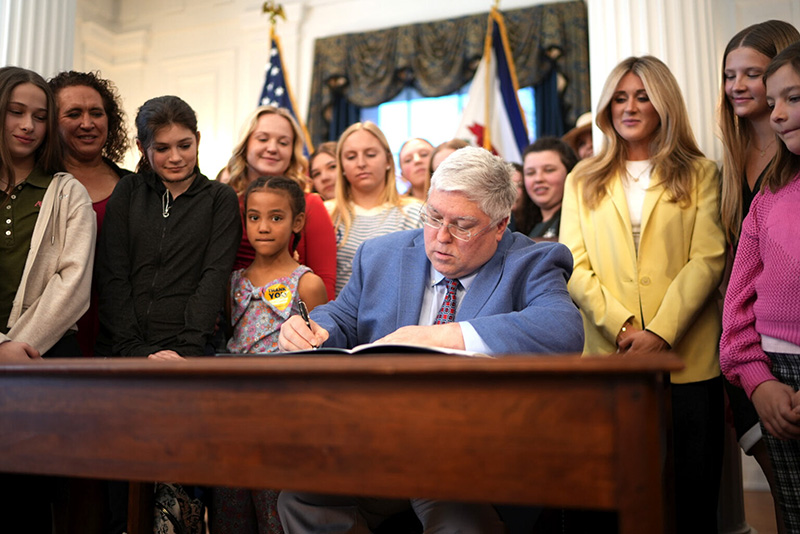Review: “A Fantastic Woman” is penetrating and poignant
A determined trans woman fights for her right to mourn her lover in the riveting "A Fantastic Woman"

Often in the movies, and especially in those depicting queer lives, a head-tripping night out at the club is meant to signal a character’s downward spiral. Those partiers into wanton sex and drug use, or terrible techno, supposedly are just asking for even worse trouble, or simply don’t love themselves enough to avoid it.
For a moment, in A Fantastic Woman (★★★★), Marina Vidal, a waitress whose life is falling apart, appears set to stumble down that depressing road. She drowns her sorrows with an anonymous hookup inside a nightclub bathroom.
The scene almost produces a twinge of disappointment that the Chilean film would take such a turn towards cliché in what otherwise has been a remarkably genuine drama about Marina dealing with the death of her lover, Orlando (Francisco Reyes). But the scene swerves in a surprising direction, and Marina doesn’t lose herself completely. Instead, she gets her life on that dance floor, and the film soars with its heroine.
Led by Daniela Vega’s powerhouse performance as Marina, A Fantastic Woman consistently surprises and inspires. It is also heartbreaking, as it tells the story of a trans woman repeatedly forced to explain and reaffirm her relationship with the deceased Orlando.

From the staff in the emergency room and the suspicious police to Orlando’s hostile ex-wife, Sonia (Aline Küppenheim), and his loutish son, Bruno (Nicolás Saavedra), Marina must defend the life, love, and friendship that she and Orlando shared. Director Sebastián Lelio, who co-wrote the script, stages Marina’s escalating trials as a series of uncomfortable and potentially demeaning confrontations. How far will these people push Marina, and how hard will she push back, if she does at all? Or, will she be broken?
With no legal status to support her claims to Orlando’s remains, his apartment, or even their dog, Marina holds on fiercely to her dignity and her memories. It could all be too despairing, but Lelio weaves through Marina’s turmoil several magical realist threads — like the continuing, strong presence in her life of Orlando’s ghost. As his love continues to sustain her, so do the film’s flights of fantasy and humor help maintain an optimistic tone, despite some dispiriting developments.

In their relatively limited screen time together, Vega and Reyes forge a warm bond as lovers that anchors Marina’s uphill climb towards some form of peace. And peace is the least that she deserves. Beyond whatever indignities she endures due to institutional or individual ignorance, she has to mourn the loss of her beloved. The film aptly captures the pain and shock of the couple entering the hospital as two, but Marina leaving alone. She’s a grieving widow, regardless of whether or not the world wants to acknowledge her grief.
Lelio allows much of the emotion to play out in silence across Vega’s expressive face, accentuated by a dramatic, strings-heavy score. Vega’s striking eyes zero in on danger, as Marina’s mind races to solve whatever problem lies before her. She’s a resourceful fighter, though not always wise, and occasionally frustrating. But the film connects the audience deeply to her mission to ensure that neither she nor her love for Orlando are erased from the history of his life.
The plot, and a couple of the supporting performances, tread a thin line between potent character-driven realism and soapy melodrama, particularly when Orlando’s death becomes fodder for a criminal investigation. Yet, Vega conveys an honesty in her portrayal that defies even the wildest turns of the plot. And while Marina is disrespected plenty, she is never less than dignified. She is flawed, but not weak, ashamed or apologetic about who she is. Like everyone else in the story, she wants her own happy ending.
Penetrating and poignant, A Fantastic Woman speaks with Marina’s powerful, daring voice, sounding a clarion call demanding she be treated with dignity and respect, and on behalf of all the LGBTQ fighters who refuse to be erased.
A Fantastic Woman is rated R, and opens at the Landmark E Street Theatre on Friday, February 9.
Support Metro Weekly’s Journalism
These are challenging times for news organizations. And yet it’s crucial we stay active and provide vital resources and information to both our local readers and the world. So won’t you please take a moment and consider supporting Metro Weekly with a membership? For as little as $5 a month, you can help ensure Metro Weekly magazine and MetroWeekly.com remain free, viable resources as we provide the best, most diverse, culturally-resonant LGBTQ coverage in both the D.C. region and around the world. Memberships come with exclusive perks and discounts, your own personal digital delivery of each week’s magazine (and an archive), access to our Member's Lounge when it launches this fall, and exclusive members-only items like Metro Weekly Membership Mugs and Tote Bags! Check out all our membership levels here and please join us today!


























You must be logged in to post a comment.